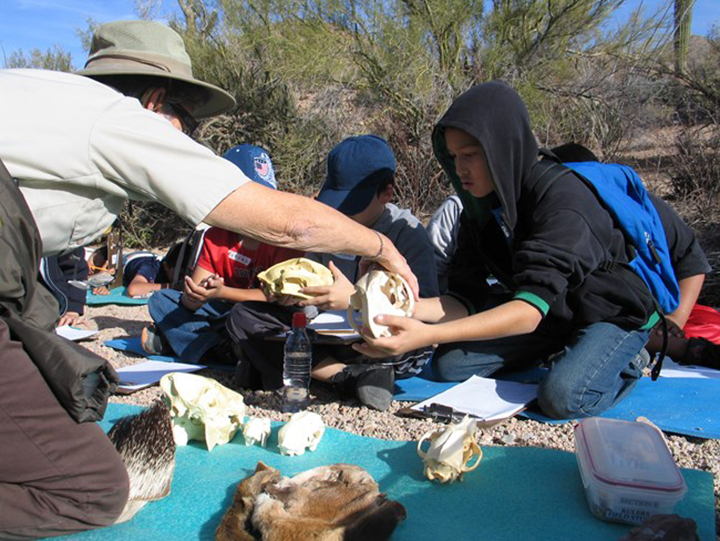Fourth-graders at Colorado’s Fox Creek Elementary want to learn more about how to conserve the Backcountry Wilderness Area, an 8,200-acre preserve that borders school property.


Fourth-graders at Colorado’s Fox Creek Elementary want to learn more about how to conserve the Backcountry Wilderness Area, an 8,200-acre preserve that borders school property.
Over the last three years, students have spent two hours a week studying the vast Douglas County outback through a partnership with the Highlands Ranch Community Association, which manages the 13 square miles of Ponderosa pines and Gambel oaks that’s home to a wide array of wildlife, from elk and pronghorn to wild turkeys and prairie dogs.
Each year, students compare ecosystems in the park, measure footprints, collect samples, look at temperatures, and conduct other field work.
“When the students come out,” camp director AnnaKate Hein told the Highlands Ranch Herald, “they are expected to be scientists.”
But something different happened this year. Armed with data and inspired by their time in the Wilderness Area, students requested to take the program to another level and put what they learned to use through a service-learning project.
According to the Herald:
To raise money for the project, Fox Creek students hosted a hot chocolate stand at Haunted Forest, a popular event in October organized by HRCA. Backcountry staff expected students—15 kids on each of the two nights—to bring in $100. They profited upward of $500.
Hein said students will likely work on constructing bluebird houses in open spaces or working to protect the ponderosa pines from elk, which often use the trees for cover.
“Science isn’t always about having the right answer,” Hein said. “Our big goal is to keep kids questioning.”
The Backcountry Wilderness project will certainly help local plants and wildlife, and forge a closer connection between Fox Creek and the HRCA, but it’s the students themselves who will undoubtedly benefit the most.
The service-learning project is part of an ancient tradition that’s known as “becoming by doing.”
Aristotle wrote in “Nicomachean Ethics” that “states of character arise out of like activities.”
By doing science in the Backcountry, the students are becoming scientists. By taking responsibility for protecting and caring for the Backcountry, the students are becoming responsible citizens and naturalists, virtues they’ll likely carry into adulthood.
Educators interested in incorporating similar service learning concepts into their classrooms can find materials and lesson plans by iCivics and others at ShareMyLesson.com.